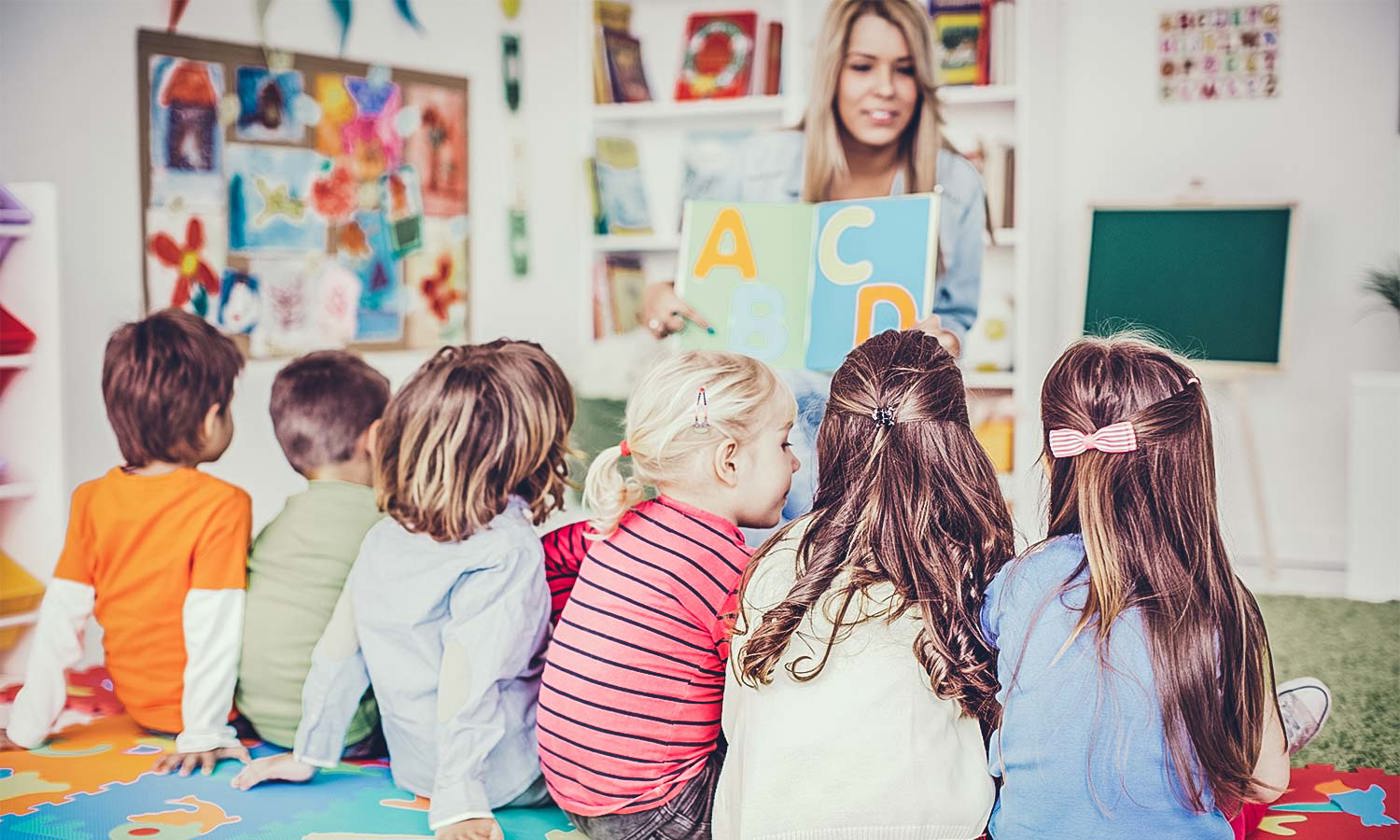Like what you see?
Sign up to receive more free parenting advice.
Thank you for subscribing to our newsletter!
Early Learning

Credit: iStock.com/svetikd
They are the trusted few we hand our children to each morning. And for many, they are the bearer of the kind and understanding smile at the end of the long day when we collect our precious little ones and head home in the evening.
Early learning educators can be a key contributor, along with parents and peers, in children's development. So, it almost goes without saying that their educators will be role models for our children.
Goodstart Early Learning educator Kirsty Brown knows what goes into making sure parents can trust their children are receiving the care and learning and development opportunities they need.
"A lot has changed," Kirsty says.
"We are now seeing skills and experience being formalised. A child's learning and development is central to everything we do now and we are always planning and putting in place activities and programming which meets the specific needs of a child, while also ensuring there is a community approach to learning and care.
"The integration and importance of play is still core, but it is all about looking for opportunities in that and knowing how to let the children guide us in their learning and development, while still engaging in intentional, age-appropriate learning."
Formal qualifications and career pathways have helped change the culture and perception of early learning educators – a vital step when the change needs to be felt within the sector before it can be outwardly accepted.
"We are still up against that notion of childcare and early learning being just babysitting, but that is shifting.
"Our educators and carers are regularly updating their skills and there are clear pathways being carved out now to sustain a longer-term career in the industry.
"It is a work in progress, and we are always working toward mentoring and coaching for educators so they are supported and given every opportunity to continue their own development.
"It's our job, as educators and as role models, to support the children, but also their families and broader networks.
"Certainly there is modelled behaviour and children learn by seeing and following the cues of what is around them. But in the care and development of children, educators are also role models to parents in many ways."
It's a careful balance and exactly why the focus has shifted from care and babysitting to development, education and learning, she said.
It's our job, as educators and as role models, to support the children, but also their families and broader networks.Goodstart Early Learning educator Kirsty Brown
Still, in a world context, Australia still has much work to do.
"There has been a big shift in the past few years, but there is still a long way to go," says Associate Professor Susan Krieg, Early Childhood Program Coordinator at Flinders University.
"Research proves the need for continuity in relationships, yet funding constraints mean some centres in some states cannot even guarantee staff numbers year to year."
And that is what makes the likes of Kirsty Brown's job so much harder.
"As an educational leader I am always looking to upskill the educators, provide professional development and mentor," Kirsty says.
"It's a 360-degree approach and we are taking all levels of skills and backgrounds, those who have been in the profession for some time and we are formalising that; we are taking the importance of early learning and applying it where it is critical."
"We do have a long way to go, but every day our job is to make sure the children in our care are given every opportunity to learn from us. So they see what we do, they see how we interact, they experience how we respond to situations and then guide them.
"As role models we have a very important role – to the children and to their families."
Kirsty said role modelling impacted every facet of a child's learning – from emotional development to motor skills, socialisation to problem solving.
"It's about context, causes and what sparks a reaction.
"It's not about judgement.
"It sets out what is okay and what isn't.
"It's about taking time to watch and following a child's lead, but then responding and positively framing outcomes and opportunities for development.
"Consistency is absolutely vital. While there could be changes and ups and downs in their lives, their early learning environment is one which can remain constant and sure.
"It is all about security – and with that come the most rewarding and holistic development outcomes."
For families, that is about more than peace of mind in their child's development and security.
"The best way to help children is by helping their families. Making time for families, talking to them and making sure they are comfortable is all important.
"Likewise, so is knowing one approach doesn't suit everyone.
"If there are issues, then we consider how to respond and then communicate with, and involve, the families to help come up with solutions. We identify what might be making a child behave in a certain way and then we take a whole-picture approach."
In the end though, Kirsty maintains there still needs to be a shift in the way child care and early learning is perceived and understood.
In the community, in government policy development, in the home – our early learning role models need to be recognised as more than just babysitters.
"It's about communication. It's about mentoring. It's about strategy and training and experience and qualifications. It's about so much more."
Get Advice
Real parents. Real problems. We’re here with a group of leading early learning and parenting professionals to answer your questions.



